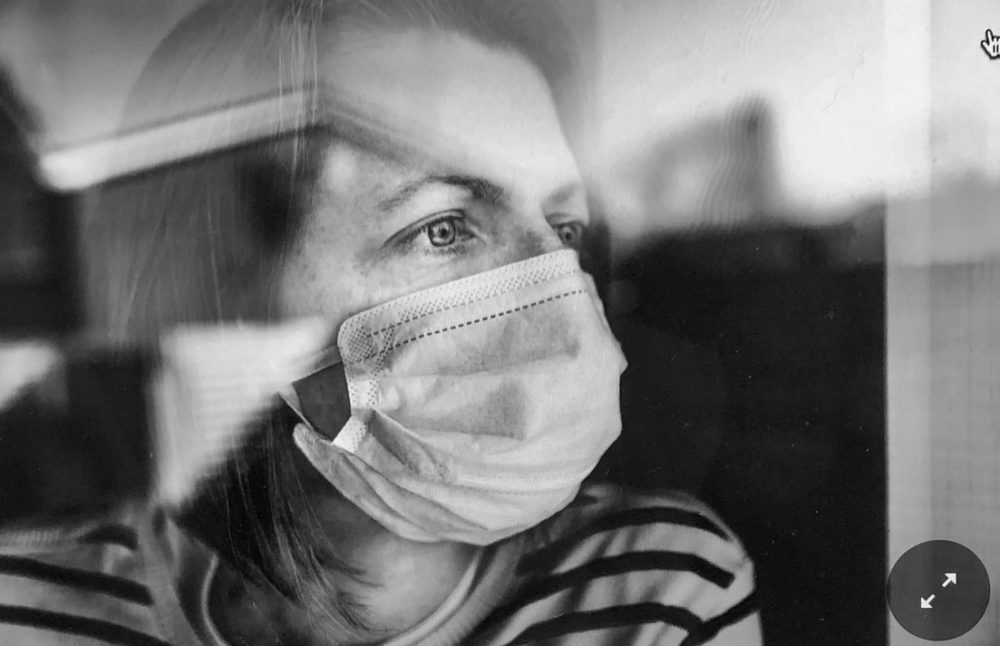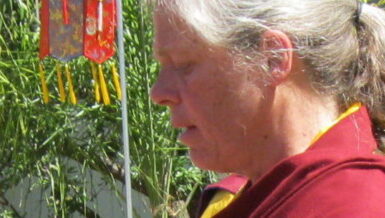
Article by April 7, 2020.
The coronavirus pandemic has not just threatened the physical health of millions but also wreaked havoc on the emotional and mental well-being of people around the world. Feelings of anxiety, helplessness and grief are rising as people face an increasingly uncertain future — and nearly everyone has been touched by loss. A nationally representative poll conducted by the Kaiser Family Foundation finds that nearly half of all Americans — 45 percent — feel that the coronavirus has negatively affected their mental health.
Which raises a question: Is there anything people can do to cope with the emotional fallout of this confusing and challenging time?
How people respond to adversity is a topic I’ve investigated for years as a journalist. Over the past decade, I’ve interviewed dozens of people about their experiences of extreme stress and have scoured the academic research in psychology on resilience to understand why some people are broken by crises while others emerge from stressful experiences even stronger than before.
What I’ve learned sheds light on how people can protect their mental health during the pandemic — and it upends some common ideas our culture carries about trauma and well-being. When researchers and clinicians look at who copes well in crisis and even grows through it, it’s not those who focus on pursuing happiness to feel better; it’s those who cultivate an attitude of tragic optimism.
The term was coined by Viktor Frankl, the Holocaust survivor and psychiatrist from Vienna. Tragic optimism is the ability to maintain hope and find meaning in life despite its inescapable pain, loss and suffering.
To understand how tragic optimism might serve us during the pandemic, it might help to recall how America responded to the Sept. 11, 2001, terrorist attacks. People reported increased feelings of fear, anxiety and hopelessness. These emotions were more debilitating for some than for others. To learn why, a group of researchers, led by Barbara Fredrickson, a psychologist at the University of North Carolina at Chapel Hill, studied the well-being of young adults in the weeks after the attacks. None of the students had lost loved ones on Sept. 11, but like the population at large, they reported feeling distressed. And yet, some of them were less likely to become depressed than others. What set those resilient students apart was their ability to find the good. Unlike the less resilient students, the resilient reported experiencing more positive emotions, like love and gratitude.
But that didn’t mean they were Pollyannas. They did not deny the tragedy of what happened. In fact, they reported the same levels of sadness and stress as less resilient people. This finding comes up frequently in psychology research: In general, resilient people have intensely negative reactions to trauma. They experience despair and stress, and acknowledge the horror of what’s happening. But even in the darkest of places, they see glimmers of light, and this ultimately sustains them.
But even more than helping them cope, adopting the spirit of tragic optimism enables people to actually grow through adversity.
For a long time, many psychologists embraced a victim narrative about trauma, believing that severe stress causes long-lasting and perhaps irreparable damage to one’s psyche and health. In 1980, the American Psychiatric Association added post-traumatic stress disorder to the Diagnostic and Statistical Manual of Mental Disorders, and since then, PTSD has received a lot of attention in the media and among ordinary individuals trying to understand what happens to people in the wake of tragic life events.
Yet psychologists now know that only a small percentage of people develop the full-blown disorder while, on average, anywhere from one half to two-thirds of trauma survivors exhibit what’s known as post-traumatic growth. After a crisis, most people acquire a newfound sense of purpose, develop deeper relationships, have a greater appreciation of life and report other benefits.
It’s not the adversity itself that leads to growth. It’s how people respond to it. According to the psychologists Richard Tedeschi and Lawrence Calhoun of the University of North Carolina at Charlotte, who coined the term “post-traumatic growth” in the 1990s, the people who grow after a crisis spend a lot of time trying to make sense of what happened and understanding how it changed them. In other words, they search for and find positive meaning.
In modern psychology research, this is known, a bit unfortunately, as “benefit finding.” Mr. Frankl called it “the human capacity to creatively turn life’s negative aspects into something positive or constructive.” Of course, some people are naturally more hopeful than others. But the success of psychological interventions like meaning-centered psychotherapy — developed by Dr. William Breitbart at Memorial Sloan Kettering Cancer Center and his colleagues to help terminal patients cope with death — reveals that even the most despairing individuals have the capacity to find meaning in a crisis.
It may seem inappropriate to call on people to seek the good in a crisis of this magnitude, but in study after study of tragedy and disaster, that’s what resilient people do. In a study of over a 1,000 people, 58 percent of respondents reported finding positive meaning in the wake of the Sept. 11 attacks, such as a greater appreciation of life and a deeper sense of spirituality. Other research shows that benefit finders grow not only psychologically but also physically. Heart attack survivors, for example, who found meaning in the weeks after their crisis were, eight years later, more likely to be alive and in better health than those who didn’t.
This doesn’t mean that people should endure adversities with a smiling face. In fact, Mr. Frankl specifically said that tragic optimism is not the same thing as happiness. “To the European,” he wrote, “it is a characteristic of the American culture that, again and again, one is commanded and ordered to ‘be happy.’ But happiness cannot be pursued; it must ensue. One must have a reason to ‘be happy.’”
He was right: In American culture, when people are feeling depressed or anxious, they are often advised to do what makes them happy. Much of the pandemic-related mental-health advice channels that message, encouraging people to distract themselves from bad news and difficult feelings, to limit their time on social media and to exercise.
I’m not suggesting those aren’t worthy activities. But if the goal is coping, they do not penetrate into the psyche as deeply as meaning does. When people do things that make them happy, like playing games or sleeping in, they feel better — but those feelings fade fast, according to research by Veronika Huta of the University of Ottawa and Richard Ryan of the University of Rochester.
When people search for meaning, though, they often do not feel happy. The things that make our lives meaningful, like volunteering or working, are stressful and require effort. But months later, the meaning seekers not only reported fewer negative moods but also felt more “enriched,” “inspired” and “part of something greater than myself.”
Though it has been only a few weeks since the pandemic started affecting life in the United States, I see people embracing meaning during this crisis. On my community listservs, people are organizing “help groups” to run errands for immuno-compromised people. They are rallying around struggling small businesses with “virtual tip jars.” Many companies and businesses, nationally and locally, are offering their services free. I’ve noticed people also say they are experiencing deeper connections to others — and feel more grateful to the caregivers, teachers, service workers and health care professionals among us. This certainly won’t be remembered as a happy period in the history of the world, but it may be remembered as a time of redemptive meaning and hope.
Does any of this mean the pandemic is a good thing? Of course not. It would be far better had the pandemic never occurred. But that’s not the world we live in. Life is, as Buddhists say, 10,000 joys and 10,000 sorrows. As much as we might wish, none of us can avoid suffering. That’s why it’s important to learn to suffer well.
Emily Esfahani Smith is the author of “The Power of Meaning: Finding Fulfillment in a World Obsessed With Happiness.”
The Times is committed to publishing a diversity of letters to the editor. We’d like to hear what you think about this or any of our articles. Here are some tips. And here’s our email: letters@nytimes.com.
Follow The New York Times Opinion section on Facebook, Twitter (@NYTopinion) and Instagram.
CLICK for article on H.H. Dorje Chang Buddha III’s comments on “Causality and COVID-19.”





Add comment